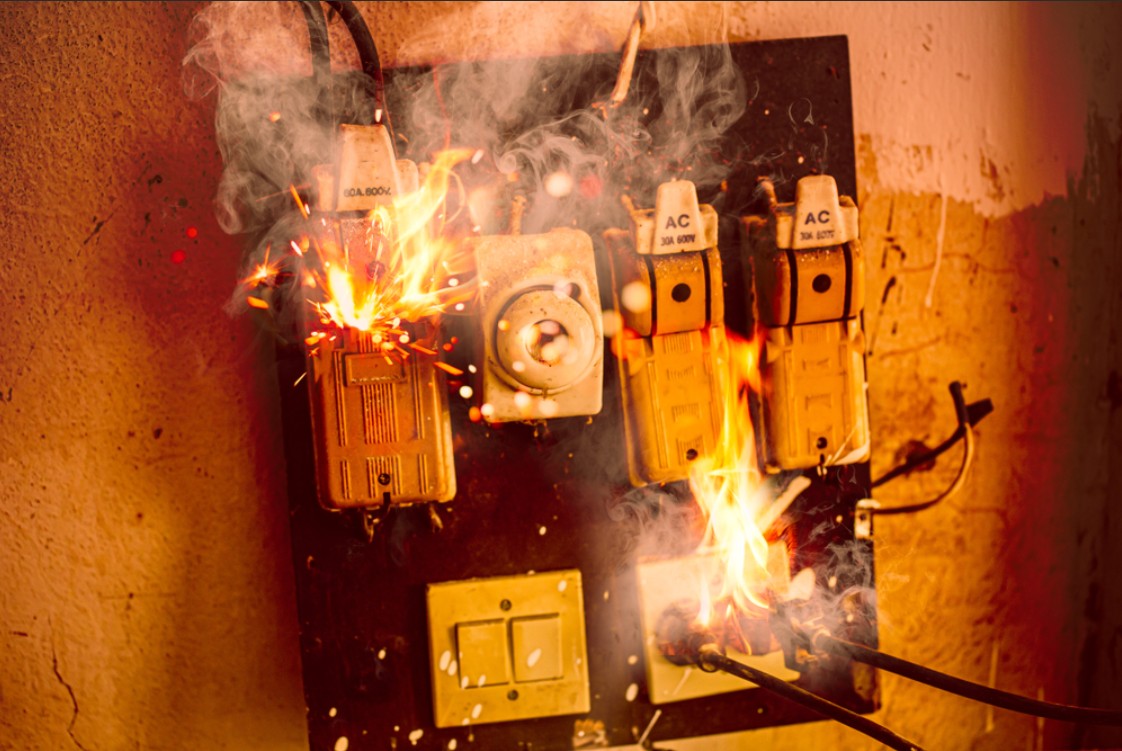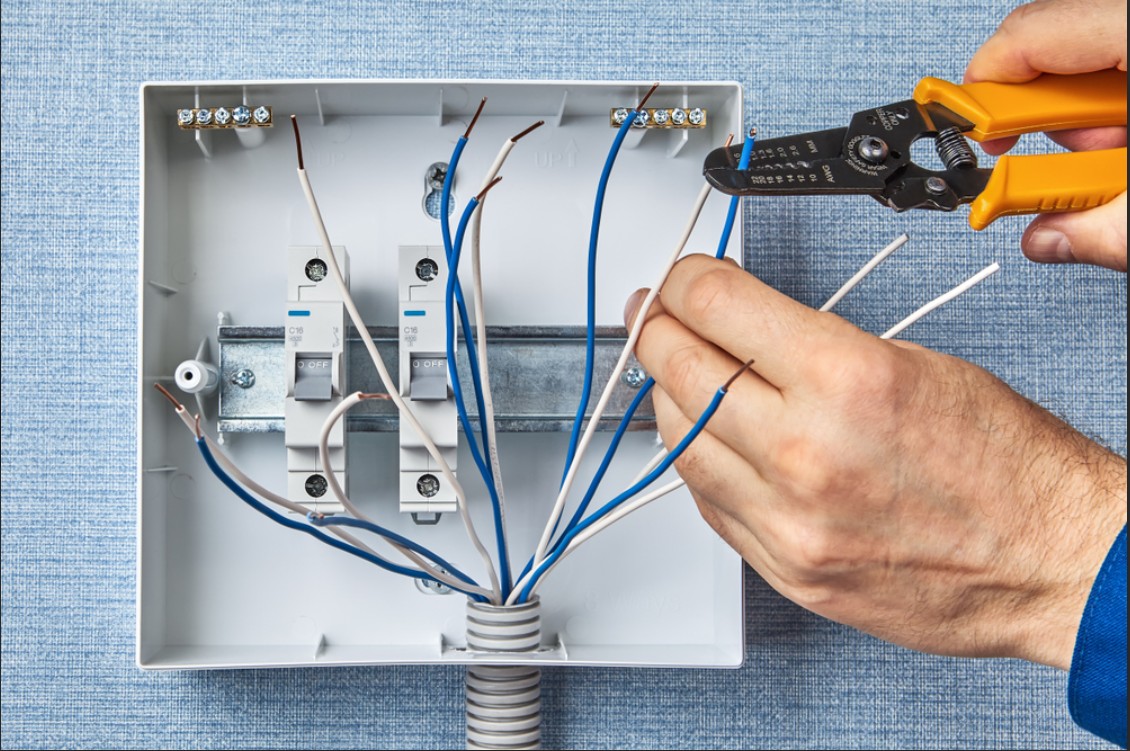Every modern household relies on electricity. However, the same currents that power your home can compromise your safety. Electrical overloads strike without warning. When they do, it places your home and family at risk. Here, we discuss the dangers of electrical overload and what you can do when disaster strikes.
What Is an Electrical Overload?
An electrical overload occurs when a circuit carries more current than it was designed to handle. This situation can lead to overheating, damaged wiring, and even fires.
Key Signs of Overload:
- Frequent Tripped Breakers: If your circuit breaker trips often, it’s a red flag.
- Dimming or Flickering Lights: Lights that flicker when using other devices indicate trouble.
- Warm or Hot Outlets: If outlets feel warm to the touch, something is wrong.
- Burning Smell: A burning odor near outlets or wiring is a serious warning.
Being aware of these signs can help you address issues before they escalate.
Why Do Electrical Overloads Happen?
Understanding the causes can empower you to take action before a crisis occurs.
Common Causes:
- Too Many Devices: Even a newly installed panel may experience strain when multiple high-wattage devices are plugged in at the same time.
- Old or Faulty Wiring: Aging wiring may struggle to support modern electrical loads.
- Inadequate Circuits: Some homes don’t have enough circuits to handle the appliances you use daily.
- Extension Cords and Power Strips: Overusing these can lead to overloads.
Recognizing these factors allows you to manage your home’s electrical demands more effectively.
The Risks of Electrical Overloads

The consequences of ignoring an electrical overload can be severe, affecting both your safety and your property.
Potential Risks:
- Fire Hazards: Overloaded circuits can ignite wires or appliances, leading to devastating fires.
- Damage to Appliances: An overload can ruin electronics and appliances, resulting in costly repairs.
- Injury or Fatalities: Severe electrical issues can lead to shocks or burns, causing serious injuries or worse.
- Increased Insurance Premiums: Claims related to electrical fires can drive up your insurance costs or result in denied claims.
These risks highlight the importance of monitoring your electrical use.
Prevention is Key
Taking steps to prevent overloads is vital for maintaining a safe home.
Essential Prevention Tips:
- Limit Plugged Devices: To avoid overloading, limit the number of devices plugged in.
- Regular Inspections: Schedule routine checks with a licensed electrician to assess wiring and circuits.
- Upgrade Electrical Panels: Seek upgrades if your home needs more electricity.
- Use Quality Devices: Buy appliances and power strips with overload protection.
- Educate Your Family: Teach family members about electrical safety and how to recognize risks.
By implementing these measures, you can significantly reduce the chances of an overload.
What to Do If an Overload Occurs
If you suspect an electrical overload, acting quickly is crucial to prevent further damage or danger.
Immediate Steps to Take:
- Unplug Devices: Disconnect devices from the affected outlet to decrease the load.
- Turn Off the Breaker: Switch off the circuit breaker that has tripped to prevent additional strain.
- Inspect for Damage: Check for signs of burning or damage around outlets and wires.
- Call a Professional: Contact a licensed electrician for evaluations. Replace electrical panels as needed.
Taking these steps can help mitigate damage and restore safety to your home.
The Importance of Expert Assistance

Seeking professional assistance when needed. Be sure to call an expert when issues arise and even when they subside.
Reasons to Consult an Electrician:
- Safety Assurance: Licensed electricians understand the complexities of electrical systems and safety regulations.
- Preventive Solutions: Professionals can identify potential problems and recommend tailored solutions for your home.
- Long-Term Savings: Investing in expert services can save money by preventing costly repairs.
Attempting to handle electrical issues without the right expertise can lead to mistakes that jeopardize your home and safety.
Ignoring the Signs: What Could Go Wrong?
Neglecting electrical overload warnings can have serious consequences.
Consequences of Inaction:
- Escalating Damage: Expensive repairs are likely when minor issues spiral out of control.
- Increased Fire Risk: Act on warning signs to prevent life-threatening fires.
- Decreased Property Value: A home with unresolved electrical issues risks losing market value.
- Emotional Toll: The stress of ongoing electrical problems can impact your family life.
Electrical overloads are a serious risk and should not be ignored. When this problem happens, be smart and call a professional. Be proactive—doing so can protect your home and family from the dangers of an electrical overload.














